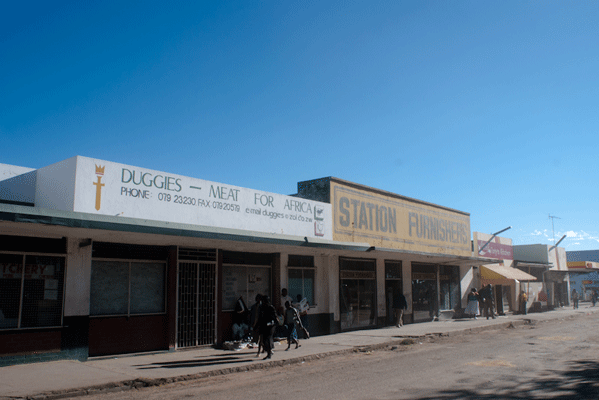
THE once vibrant Marondera industrial site has become a shadow of its former self and has been transformed into a “ghetto” by desperate home seekers and street urchins.
BY JAIROS SAUNYAMA
Strategically located along the Harare-Beira railway line, the industrial site has been allowed to collapse as the town’s agriculture-fed industry folded, following the violent seizure of white commercial farms at the turn of the Millennium.
Desperate home seekers have turned some of the company shells and abandoned buildings into homes.
NewsDay visited the area recently and it was evident that people were now renting the buildings for residential purposes, while the abandoned ones are being occupied illegally by those shying away from paying rentals in residential areas.
In the morning, school-going children are seen coming out through the big gates, while women are seen washing clothes and doing other “household” chores. It is now a common sight to see clothes hanging on washing lines right at the heart of the industrial area, while satellite dishes are also evident.
“I am paying rent to the owner of the building. Despite having shelter, I am also acting as a caretaker. There is nothing wrong with that,” said 30-year old Shyleen Mbetsa, who stays at one of the buildings with her two children.
Another dweller who refused to be named said rentals were often cheap in the area as compared to residential areas.
- Chamisa under fire over US$120K donation
- Mavhunga puts DeMbare into Chibuku quarterfinals
- Pension funds bet on Cabora Bassa oilfields
- Councils defy govt fire tender directive
Keep Reading
“Rentals are cheaper. Some are even staying for free. When I came here, there were few people around, but more people are trickling in. By end of year we will be many enough to constitute a cell or branch,” the dweller said.
This paper also observed that some of the buildings have been turned into unregistered learning institutions. Pupils clad in school uniforms are seen milling around the industrial area.
Over the last two decades, many Zimbabweans have lost their jobs as economic conditions worsened, resulting in massive de-industrialisation.
Former Marondera mayor and PDP’s local governance secretary Farai Nyandoro said the invasion of the industrial area by home seekers is a sign of a dysfunctional sector as well as council’s failure to provide affordable accommodation.
“It’s a sign of a dysfunctional industry and that there is no production at all. It’s also a sign of council’s failure to provide affordable accommodation in the form of residential stands to the people. The current scenario is also a sign of lawlessness and desperation by tenants,” he said.
With an estimated unemployment rate of 95%, Zimbabwe is one of the countries with the highest unemployment rate in the world. This was fuelled by the closing down of industry.
The government has, however, blamed the current economic status on the Western imposed economic sanctions.
Marondera businessperson, Dunmore Mutyambizi, said the demise of the industry is a result of a changing economic environment in the wake of the emotive land reform programme.
“Marondera is and should have been an agricultural service centre since it is a farmers’ town. The continuous changes in the economic environment after the land reform have redefined that established course for industry,” he said.
“The new farmers who would have fully supported this growth pattern have had a number of challenges, that is, limited access to value chain financing, training and experience. This has made it difficult for local manufacturing companies to remain relevant to the town’s needs as supported by immediately available production.”
Mutyambizi said the town has few companies with good business models, including Proton, Interfoods, Nhimbe Fresh Exports (previously known as Rollex or Mitchell & Mitchell) packaging fresh stone fruits, peas and beans for the European market.
“It’s important to note that the competitiveness of these local industries is being hampered by loss of the market share to foreign industries that have industrial efficiencies supported by their countries’ economies making their products less costly, but still better in quality. We need more affordable finance and incentives to this sector,” he said.
Notable companies that have since wound down include Mashco, CSC, Marondera Foundry, Farma-Rama and Marondera.
Residents have expressed concern that some of the abandoned buildings in the industrial area risk being used as havens of social vices like prostitution.











